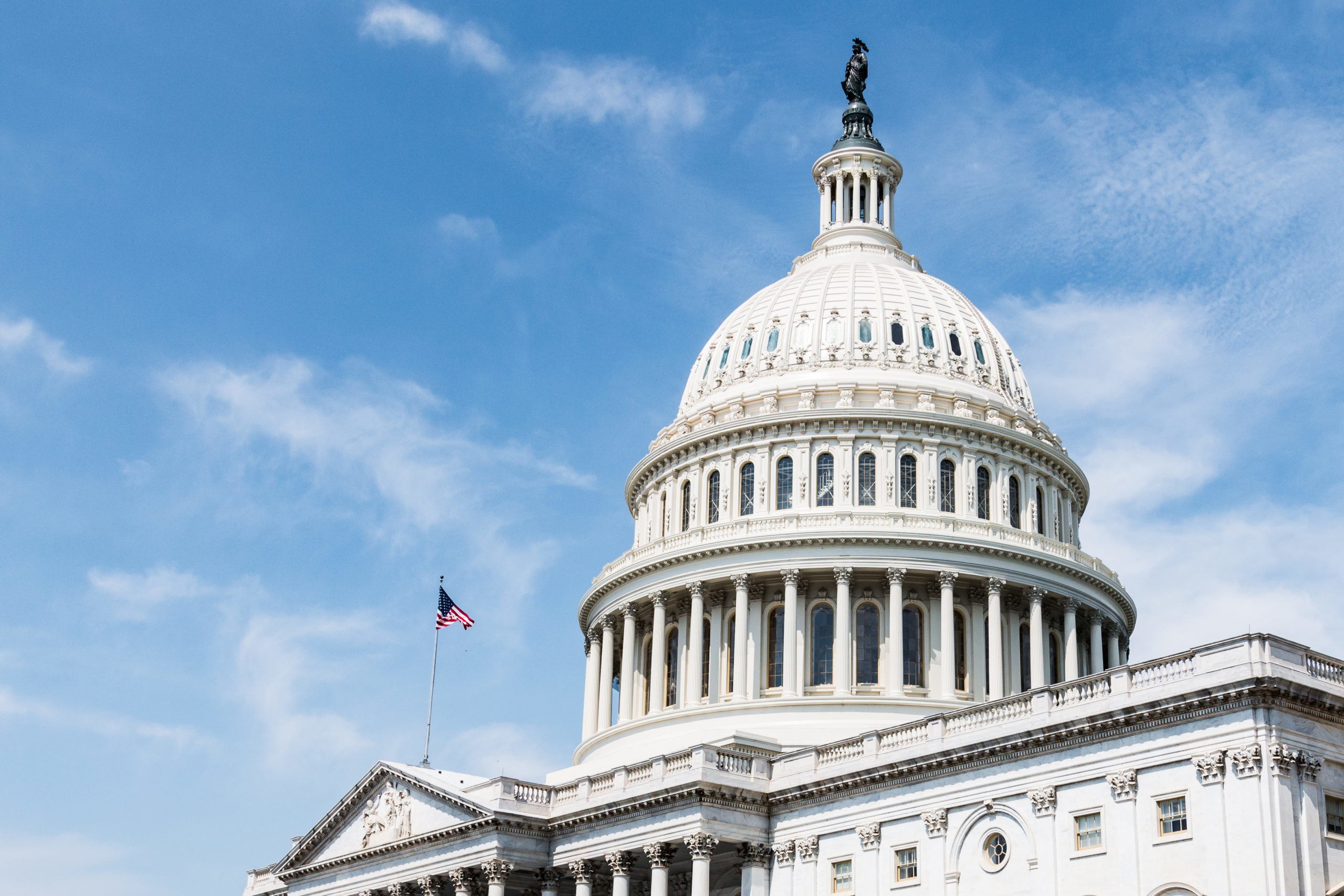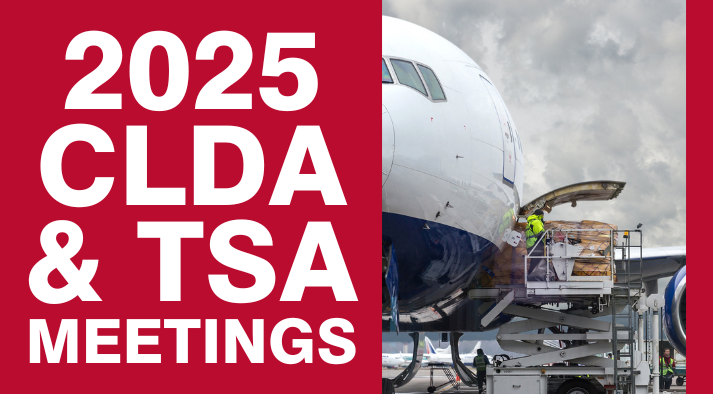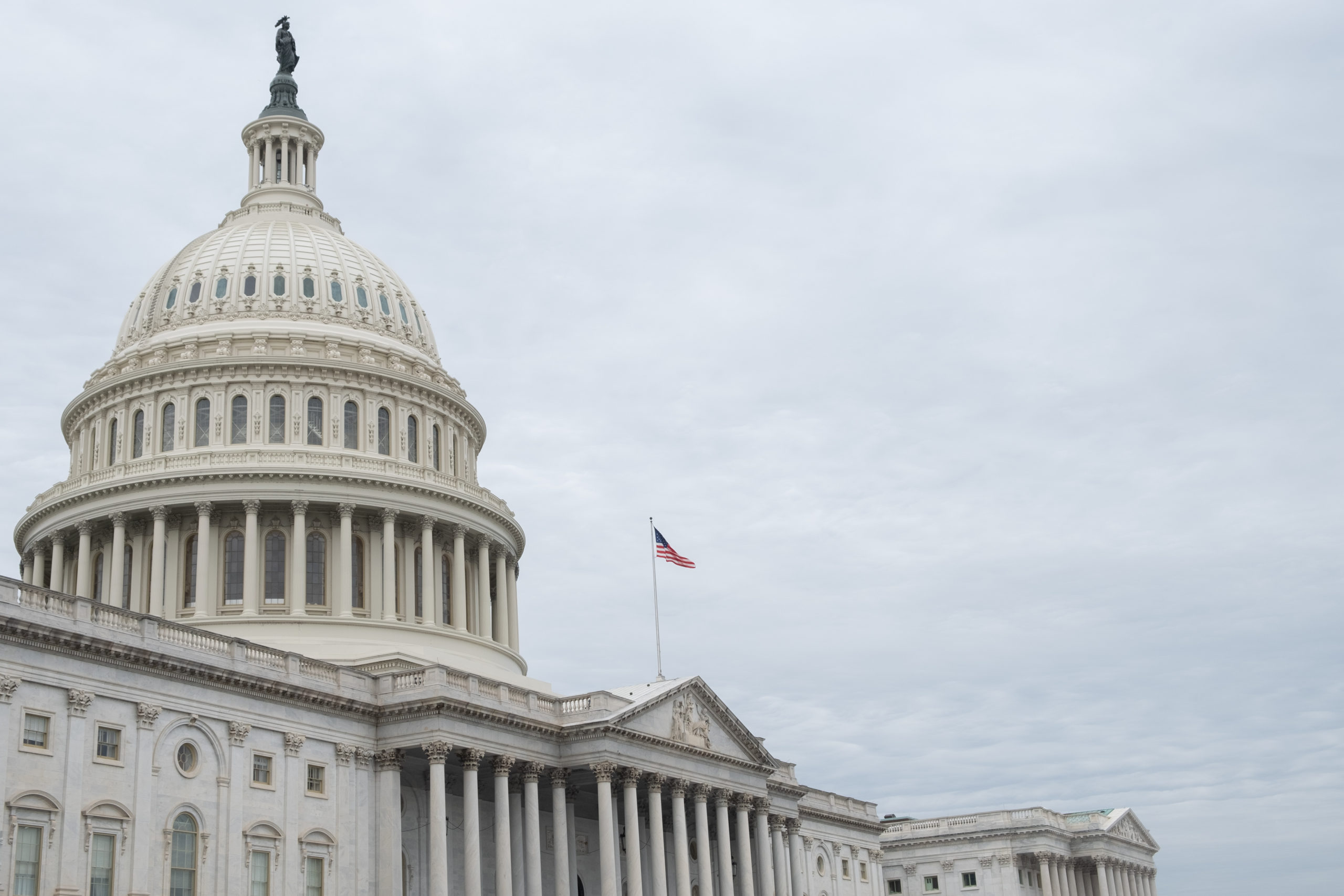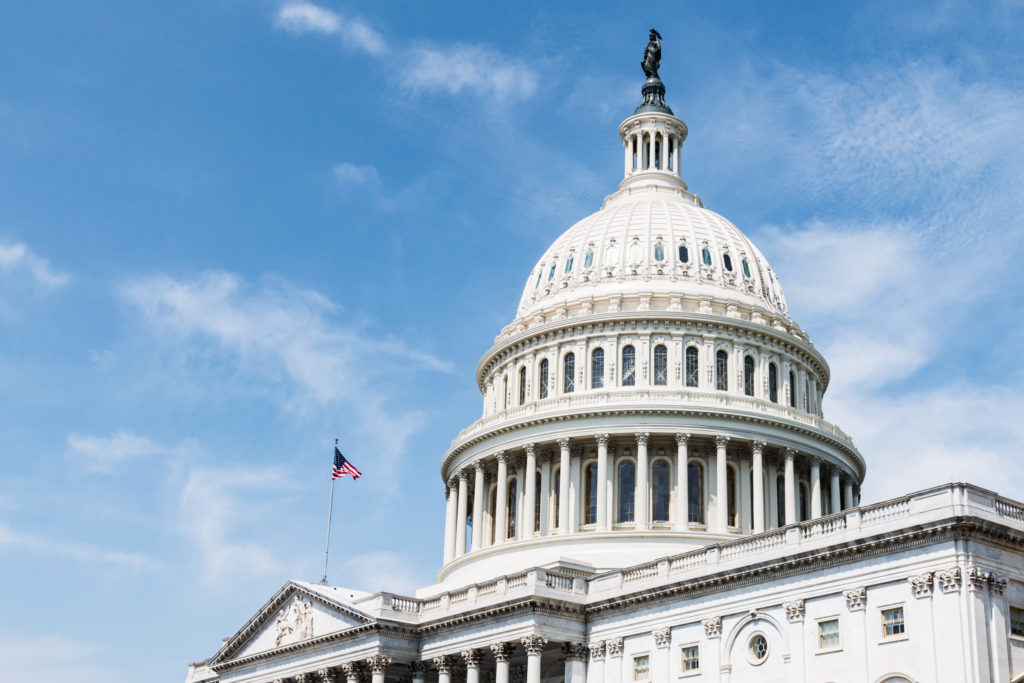
Home | Government Affairs






CLDA Members are encouraged to share news about their company. CLDA may share on social media, in newsletters or on the website.

Ready to share your news with CLDA or the industry media? Learn from these tips and tricks on how to get noticed.

CLDA has joined with several major industry organizations in support of a pivotal court case that addresses arbitration for conflicts involving transportation workers. The association is one of the signers of an amicus brief before the court that addresses this issue alongside the American Trucking Association (ATA), National Home Delivery Association (NHDA) and Truckload Carriers Association (TCA). This move aligns us with several of the largest organizations in transportation and logistics and places CLDA at the forefront of efforts to defend the business models that make the final mile possible.
This legal effort underscores a key principle for our industry: final-mile companies deserve the right to resolve disputes through arbitration rather than litigation. Arbitration protects operational flexibility, reduces costly legal entanglements, and ensures faster resolution. These benefits are critical to the success of our members.
An amicus brief allows organizations that are not direct parties in a case to share their perspective on the decision’s broader implications. By signing on, CLDA is helping to inform the court of how its ruling could impact thousands of final-mile businesses and workers across the country.
Opportunities like this are often out of reach for individual businesses but as a unified voice through CLDA, our industry can be heard. Participating in legal advocacy, like signing onto this amicus brief, gives us access to tools and channels not readily available to individual members. CLDA ensures that your interests are represented in critical conversations that shape the future of final-mile logistics.
The court will consider the information presented, potentially scheduling oral arguments, and make a decision in the case. We will keep you updated.
To kick off this year’s DC Fly-In, CLDA brought together a powerful group of transportation security stakeholders for a strategic meeting at the Washington, DC offices of our advocacy partner, Prime Policy Group. The meeting included leadership from the TSA’s Cargo Division, members of CLDA’s Air Cargo Sub-Committee, and key representatives from across the industry, reinforcing CLDA’s role as a trusted voice for customized logistics.
Representing TSA were Thomas Friedman, Industry Engagement Manager for Air Cargo, and Marc Rossi, Aviation Engagement Manager for Air Cargo & eCommerce. They were joined by Michael Taylor from the Airforwarders Association, as well as CLDA members Ralph Perrothers (On The Go Cargo), Joel Pinsky (Global Messenger and Logistics), Noah Alvarez (Alvy Delivers), David Pickerell (Gigsafe), and Paul Pantin (eZone). Andrew Terp and Casie Daughtery of Prime Policy Group also participated.
The conversation built on CLDA’s recent white paper advocating for direct regulation of Authorized Representatives (ARs), with the goal of creating more accountability and clarity across the air cargo chain. The group also discussed the critical role of independent contractor drivers in secure deliveries, the need for faster STA processing, and TSA’s ongoing technology challenges.
TSA leaders noted that, as a Congressionally mandated agency, they need legislative support to implement the proposed changes. They encouraged CLDA to seek Congressional backing to update the Code of Federal Regulations accordingly. The group also received updates on the Aviation Security Advisory Committee (ASAC), which is expected to be reconstituted by the end of the year. Attendees agreed that CLDA, AfA, and other allied associations should submit a letter to the Acting TSA Administrator addressing their concerns.
The meeting reflected a shared commitment to advancing secure, efficient logistics operations and a growing opportunity for CLDA and its members to shape the future of federal air cargo policy. Thank you to all that participated in this meeting. It is an important step forward in our relationship with TSA.
CLDA urges members to oppose anti-IC policies on behalf of the industry. The policies of Lori Chavez-DeRemer, the proposed nominee for Secretary of Labor, raise concerns about her commitment to workers’ fundamental freedoms, which should give our members pause. Of particular concern is her history of restricting the use of independent contractors (ICs) while she served in Congress, Since 90% of CLDA members rely on ICs, we believe the national implementation of such policies would burden the logistics industry and the broader supply chain.
We must act now to ensure that as part of her nomination process, the Department of Labor nominee commits to the freedom to work as one chooses and to prioritize a fair, flexible labor environment.
CLDA requests all members to urge their representatives to consider the significant impact of these policies on the economy, entrepreneurship, and worker freedom. Request your representatives to strongly advocate at all hearings and every opportunity for a fair and balanced approach that prioritizes flexibility, independence, and innovation in our workforce.
Restricting Workers’ Right to Choose
With 90% of CLDA members relying on independent contractors (IC), the national implementation of such policies would place immense burdens on the logistics industry and the broader supply chain.
Rep. Chavez-DeRemer co-sponsored the Protecting the Right to Organize (PRO) Act, which sought to impose strict restrictions on IC status through a rigid ABC test. This approach mirrored California’s controversial Assembly Bill 5 (AB5). AB5 made it practically impossible to be an IC in the state, forcing many to cease operations altogether.
Research from the Mercatus Center revealed that AB5 resulted in affected sectors experiencing a staggering 10.5% decrease in California jobs. These outcomes highlight the inherent flaws in measures like the PRO Act, which limit labor options rather than expand them.
Undermining Entrepreneurial Freedom
Chavez-DeRemer’s support for federal anti-IC policies reflects a troubling trend toward centralized control over employment arrangements. The PRO Act upends over two dozen state-enacted right-to-work laws, eliminates private ballots for union voting, allows secondary boycotts, targets connected companies, codifies an unworkable joint-employer definition, and the list goes on.
“Being pro-worker means defending the rights of all workers, including those who decide it is not in their best interest to form or join a union. No American should be intimidated or coerced into joining a union,” states Senator Bill Cassidy (R-La.), chair of the Senate Health, Education, Labor, and Pensions Committee.
CLDA fully endorses Senator Cassidy’s statements and believes workers should be free to work for themselves without undue interference.
CLDA Rejects Chavez-DeRemer’s Policies
Lori Chavez-DeRemer’s support of these policies significantly threatens worker independence and economic growth. These policies erode individuals’ rights to choose self-employment or employment that benefits their lifestyle and impose unnecessary burdens on businesses and their ability to innovate.
We urge all stakeholders to contact their representatives and voice opposition to Lori Chavez-DeRemer’s position on these policies and ask for a commitment from the Department of Labor nominee to prioritize the freedom to work as one chooses and foster a fair, flexible labor environment.
The Fight is On! Tell congress to leave independent contractors and class action lawsuits out of the political agenda
As you may have heard, there is a massive $3.5 trillion dollar “infrastructure” bill being negotiated in Congress right now. While it is being called an infrastructure bill, it is really a vehicle for the Congressional majority to make significant changes to employment law and our social safety net.
What little the government has revealed about the contents of this bill is very concerning – the bill of course includes an increase to the corporate tax rate, from 21% back up to about 26.5%. However, other more troubling provisions are also present. It appears that the House Majority are using the reconciliation bill to pass portions of the politically infeasible PRO Act, which stalled out in the Senate earlier this year. The markup out of the House Education and Labor Committee included a provision, detailed below, which would effectively ban the use of Independent Contractors and would remove the ability of employers to use arbitration agreements.
The provision in question would create new civil penalties (up to $50,000 per violation) for a set of “unfair labor practices” (ULPs), which would now include misclassifying workers as independent contractors. The bill would make it unlawful to “communicate or misrepresent to an employee… that such employee is excluded from the definition of employee”. In other words, the law would make it a crime, punishable by a $50,000 fine, simply to communicate to an employee that they are not an employee. Business executives and directors could be held personally liable for these alleged ULPs. Additionally, the law forbids the use of employee agreements designed to prevent class action lawsuits.
This provision attempts to do the same thing the PRO Act was designed to achieve: make the penalty for IC misclassification so high ($50,000 per IC) that employers are scared to use ICs, which then allows unions to try to unionize the drivers who are made employees due to the employer’s fear of the penalty. Today, we ask that you directly contact your Congressional representatives to stress how bad this change to our longstanding legal frameworks would be. We know that Independent Contractors are an important part of the US workforce, and in general, they prefer being ICs to traditional employment!
Please use the information below to impact the government’s plans and help our industry survive the impacts of this shortsighted “infrastructure” package!
Tell congress to leave independent contractors and class action lawsuits out of the political agenda
As you may have heard, there is a massive $3.5 trillion dollar “infrastructure” bill being negotiated in Congress right now. While it is being called an infrastructure bill, it is really a vehicle for the Congressional majority to make significant changes to employment law and our social safety net.
How to have an impact – CALL these Congressional offices TODAY!
Use the language below to succinctly make our case.
Introduction: My name is ______ and I am an employee/owner of _____. My company is part of the courier industry, and we rely on Independent Contractors as an important part of our workforce. Our drivers like having the choice to work as Independent Contractors and most prefer it to employment. We also rely on Arbitration agreements to quickly and fairly resolve legal issues.
Make the ask: I am asking you for your help to ensure that any reconciliation bill which passes does not include any provisions that would jeopardize the ability of Independent Contractors to find work in their industry or to increase Class Action lawsuits by killing arbitration agreements.
Conclude: Thank you for your attention to this problem. I hope Congress will not act to remove choice from America’s logistics drivers!
Please circulate this call to action to your colleagues and enlist their support. With more people contacting Washington, our chances for success increases.
Thank you for your assistance and support in this matter. CLDA Government Affairs staff will continue our work to represent your interests in Washington and will keep you informed of our progress.
Last month, the U.S. Senate Committee on Commerce, Science, and Transportation considered and overwhelmingly approved the Surface Transportation Investment Act of 2021. If passed by the full Senate and then reconciled with the House companion bill, this legislation would become the new transportation safety title to a reauthorization bill.
At a high level, the bill spends $78 billion over five years on surface transportation programs, including $13 billion on safety, and would be a significant increase over the previous reauthorization (the FAST Act) in 2015.
Although the highlighted provisions below only apply to vehicles over 10,000 lbs. GVWR, we know many if not most couriers have at least some of those, which is why we are providing this update.
We also note that this legislation does not include an arbitrary increase to minimum insurance requirements, as is the case in the House bill. In coalition with the Owner-Operator Independent Drivers Association (OOIDA) and many others, CLDA has been working aggressively to prevent passage of this increase.
CLDA is continuing to closely monitor the progress of the PRO Act as it moves through the House of Representatives. Yesterday, Rep. Elise Stefanik (R-NY-21) gave testimony before the House Rules Committee on her proposed amendment to the PRO Act which would have struck the most damaging provisions from the bill. Read more.
H.R. 842, known as the Protecting the Right to Organize Act of 2021 (or the PRO Act for short) is coming up this week for a floor vote in the House of Representatives. This is the same “PRO Act” advanced in 2019 by the House. That bill died in the Senate in 2020, but we are in a new political landscape now and House Democrats are looking to advance the PRO Act again. The PRO Act would have many effects on the American economy (and these have been well documented by various news outlets). But there are several provisions of the PRO Act which we believe would be very harmful to CLDA member businesses. Read more.
As part of a reorientation in Department of Labor (DOL) policy, the Biden administration has removed from use a series of Trump administration opinion letters regarding the Fair Labor Standards Act (FLSA). Issuing these opinion letters was a practice widely used by the Trump DOL for quick deregulation without the need for a lengthy rulemaking and public comment period. However, the ease with which these letters are issued makes them a short-term fix, and they can be withdrawn just as quickly as they were issued. Read more.
CLDA, in partnership with NYMCSA and TIA, is proud to announce a virtual Transportation and Logistics Advocacy Day in Albany, New York, April 26-28. This is an important opportunity for you to learn about critical industry issues, develop and improve relationships with policymakers and their staffs, and educate and advocate on our industry’s top concerns in the very important state of New York. Learn more.
CLDA continues to advocate for PPP fixes on behalf of our members. See the latest letter to Congress on S. 3612.